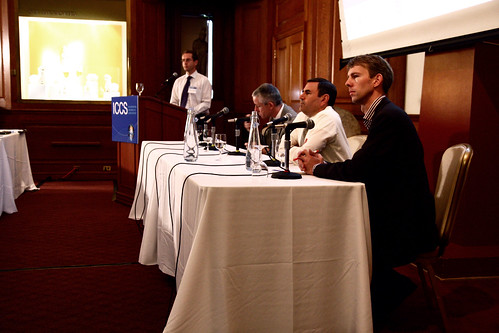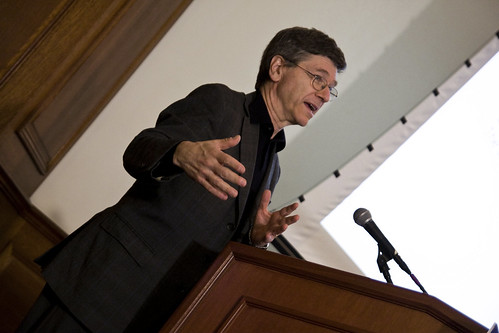
Changes in climate and weather affect everyone on the planet. Those changes can cause damage or pose opportunities depending on their scale. For example, drought or overly heavy rains can wipe out crops and cause a ripple of damages. However, a more manageable increase in rains can help farmers have a bumper year and accompanying string of positive outcomes.
The provision of timely and tailored climate information in the form of climate services can help not just farmers but society as a whole limit the economic, ecological and social damages caused by climate-related disasters, and take advantage of opportunities provided by favorable conditions.
Designing effective climate services is a time-consuming process, though. “It involves a complicated dance between users of climate information and those that provide it,” said Cathy Vaughan, one of the organizers of the conference from the International Research Institute for Climate and Society (IRI). “Each side must learn the other’s needs and capabilities.” It isn’t surprising then that climate services have a long way to go in both the developed and developing world.
Developing a strategy to address this shortfall was the primary goal of the first International Conference on Climate Services (ICCS), held at Columbia last week. The IRI and the Earth Institute, along with the National Oceanic and Atmospheric Administration, Germany’s Climate Service Center, the UK Met Office and the National Center for Atmospheric Research organized the event, which brought together nearly 100 experts from 30 countries.
Conference participants included leaders from major climate information providers, such as the World Meteorological Organization and the meteorological services of numerous countries. Perhaps more importantly, key users of climate information such as the Red Cross, the U.S. Agency for International Development and the World Food Programme were present. The research community and donor organizations rounded out the rest of the participants.

The key outcome of the conference was the creation of a Climate Services Partnership, an informal alliance of climate information providers, users and others who want to advance the state of climate services around the world.
To do this, the group will outline good practices in the use of climate information and identify methods to evaluate the effectiveness of climate services. As part of this effort, they will develop individual case studies of how climate information is used and disseminated and the lessons learned from them. All this information will be available through an interactive website, allowing the wider community to benefit from their findings.
Organizations including USAID; the Red Cross Red Crescent Climate Centre; the Climate Change, Agriculture and Food Security Research Program and the Adaptation Partnership have already contributed resources totaling nearly half a million dollars to further these and other efforts of the partnership. These resources will be used to support activities in developing countries in particular over the next 14 months.
“No institution, indeed no nation, is posed to solve this problem in the foreseeable future, despite a sense of urgency to do so,” explained Steve Zebiak, director-general of the International Research Institute for Climate and Society. “International collaboration is necessary.”
This sense of urgency was underscored by Earth Institute director Jeffrey Sachs in his discussion of the current crisis in the Horn of Africa during his keynote speech.

“When an event like this happens, there is no easy way to gather information about what’s happening,” Sachs said. While there are early warning systems and United Nations processes that provide some information, he continued, they “don’t begin to answer the many questions that inevitably arise from policy makers and communities. You have a lot of questions and no reliable place to turn to right now; there is no serious process of engagement of the world scientific community in a crisis like this.”
The need for international collaboration was also emphasized at the World Climate Conference 3 held in Geneva in 2009. Out of this conference emerged the Global Framework for Climate Services, an international structure meant to ensure the availability of user-friendly products to help in decision-making and planning for changing climate conditions.
Representatives of that program attended the conference to identify linkages between their framework and the new partnership. As Zebiak explains, the goal of both is to develop the conditions in which “climate information can enable more climate-smart policy and decision making.”
The ICCS website has videos of the opening and closing sessions, as well as Twitter and blog updates of the conference and its outcomes. One-on-one interviews with some of the participants will be available soon on IRI’s Vimeo page as well.
Stay connected with IRI on Twitter.


